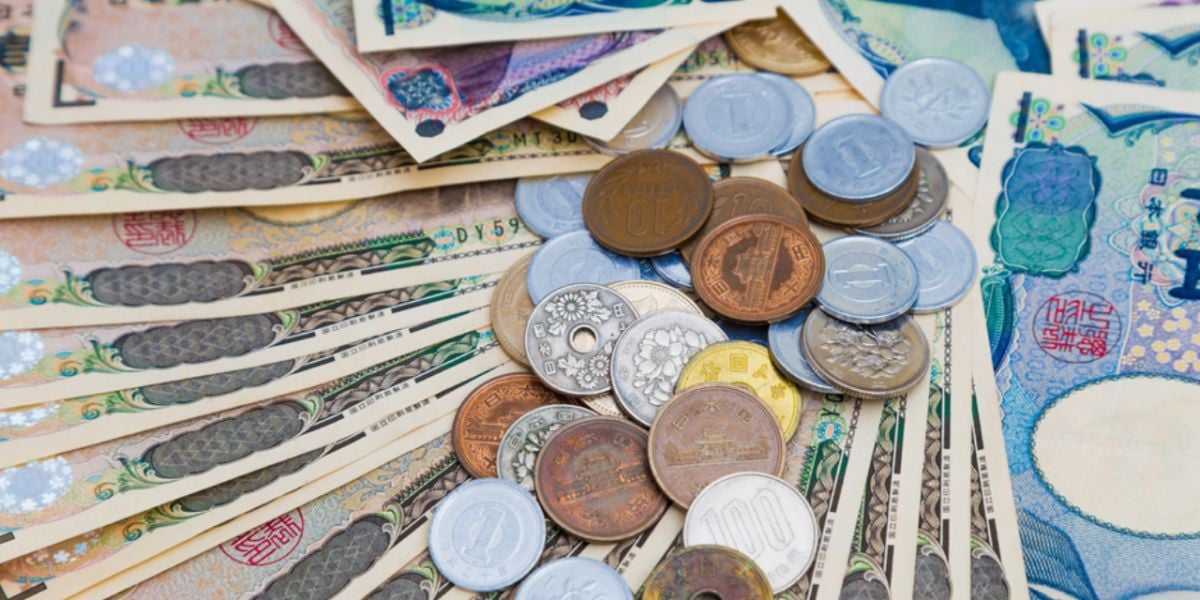
Welcome to the Land of the Rising Sun. Now that you have completed all your administrative paperwork, you can relax for a few days and go out to discover your new environment.
Once back home, back to your daily routine and its formalities, you are now wondering how to open a bank account in your new host country. Check out the following practical guide. It will help you understand all the processes and formalities you will need to go through to serenely open your bank account in Japan.
Is it necessary to open a bank account in Japan?
Considering the ongoing war between neo-banks and traditional banks, the question has to be considered. If you are only staying in Japan for a few months, it might be pointless to open a bank account.
However, should you plan to stay for a longer period of time, a bank account might prove very handy. Some people prefer online accounts like N26 or Revolut for their simplicity and convenience. Others prefer to have a traditional bank account, especially if they plan to work in Japan or are currently working. Take the time to weigh the pros and cons of both systems and, of course, you can also opt for a Japanese online bank.
Be aware that even if you are a Japan WHV (1-yr Working Holiday Visa) holder, you can open a bank account. If you are planning to immigrate to Japan for a long time, you are advised to open a bank account there.
Who can open a personal bank account in Japan?
One must hold a long-term visa to open a bank account in Japan. In that sense, WHP holders, students, workers, entrepreneurs, and permanent residence visa holders can open an account. It is, therefore, impossible to do so with a tourist visa.
Reasons for opening a bank account in Japan
To know if having a bank account in Japan is worthwhile, first ask yourself what the account will be used for.
What do you need?
- Have you checked with your bank in your hometown before leaving? Do you have an international option?
- Do you need an account to receive your salaries?
- Do you plan to deposit cash, for instance, the money you converted before coming to Japan, into an account?
- Do you plan to make international money transfers?
- Do you have any long-term plans in Japan (renting or buying an apartment or a house, various financial investments, buying a car, plans for marriage, children, etc.)?
What are the benefits of opening a bank account in Japan?
Opening a bank account in Japan offers several advantages, especially when you have cash in hand. The first one is security. Rather than keeping your currency with you or in your home, it is better to keep it safe in a bank account.
You will be able to withdraw cash at any time and also to deposit money whenever you want at an ATM with the debit card that will be provided to you when you open your account. Such operations with Japanese banks are generally free of charge, unlike with foreign banks, cards of which are not always accepted by all Japanese ATMs.
With a Japanese bank account, you will have no problem working in Japan. You will be able to send your bank details to your company, which will deposit your salary directly into your account. This advantage is not only for people with permanent jobs. Even if you have a small job in Japan, having your Japanese bank account readily working is in your interest.
In addition, a bank account will allow you to easily subscribe to Internet offers in Japan. This advantage might be irrelevant if you live in an accommodation where the rent covers internet costs (a sharehouse, for example).
But if you rent or buy your home and want to subscribe to an Internet offer, you will need a Japanese bank account. The same logic applies to all big purchases and loan applications for any project requiring banking operations.
Steps for opening a bank account in Japan
The list of documents presented below is generally requested by banks, both traditional and online. It may vary from one bank to another.
Documents usually requested by banks
- Your resident card ("zairyû"): the card must mention your current address. If you have changed your address, you must first report the change to your local city hall. Then, go to the city hall of your new district to register the new address on your card;
- A Japanese telephone number;
- Your seal or "inkan": In Japan, the "inkan" serves as a signature. It is engraved on a stamp called "hanko". These seals are simple to be made, and the cheapest ones cost between 300 and 400 yen. Depending on the bank, the "inkan" may or may not be mandatory; if it is not mandatory, a handwritten signature will suffice;
- An initial deposit of 1000 yens.
Other documents that may be requested by the bank
- Your passport;
- Proof of address (you can obtain it from the city hall);
- Your “My Number” details (Japanese identification system linked with social security and tax authorities);
- A work certificate or a school attendance certificate (depending on your situation).
Procedures for opening a bank account in Japan
There is no need to make an appointment. Simply go to the counter of the bank you have chosen. Register on the bank's website if you opt for an online bank.
Filling in the application form
Simply fill in the form that will be given to you. Make sure you write your name in "katakana". It is one of the three writing systems prevailing in Japan, along with "kanji" and "hiragana". “Katakana” is used to transcribe foreign words. So, practice writing your name in "katakana", as it will be handy for other formalities in Japan.
Also note that in Japan, one has only one family name and only one first name. If you have more than one, write them all down. Do not hesitate to specify it in case you are asked.
The form is classic, with fields for name, date of birth, nationality, phone number, etc.
Choosing options
- Cash card or ATM card
You will usually automatically receive a cash card upon opening the account. It allows you to withdraw, deposit, or transfer money from your bank account at the counter or ATMs everywhere in Japan, especially in convenience stores such as konbini, the 24-hour convenience store chain.
You may be charged a fee if you withdraw or transfer money from a convenience store or a different bank or even use your card at your bank's ATM. The amount of this fee depends on the time of use and the policies of each bank. For instance, if you use an SMBC card at the main branch ATM on weekends or outside of regular hours, you must pay 110 yen.
The bank will ask you to choose a 4-digit secret code to activate your cash card. You will also be able to select the design of your card from the catalog provided by your bank.
- Credit card
Credit cards are commonly accepted at hotels, restaurants, and shops throughout Japan. You can apply for credit cards like VISA, Mastercard, JCB, and AMEX through local banks and other institutions.
You can also apply for a credit card when you create your account. Your application will be reviewed. This examination is not only for foreigners but also for Japanese customers. Your bank, bound by a contract with a credit institution, is urged to examine and verify that your financial situation allows you to have a credit card.
Review criteria:
- Employment status: are you in sustainable employment? How long have you been working?
- Salary: What is your annual salary? A yearly salary of less than 3 million yen is often insufficient to apply for a credit card in Japan.
- Visa (checkpoint for foreigners): What is the duration of your visa? If you hold a short-term visa (less than 3 years), there is a considerable risk that you will be denied a credit card.
- Outstanding loans (checkpoint for Japanese customers): if the applicant has several outstanding loans, the card application is more likely to be denied.
Typically, banks have strict criteria for approving credit cards, making it challenging for individuals who have been in Japan for less than one or two years. However, there are alternative options available. You can apply for credit cards issued by companies or large holding companies such as Rakuten Card, EPOS Card, LUMINE Card, MUJI Card, or JAL Card.
Is a credit card essential? Again, it all depends on your spending habits and plans. For a few years, payment by card has been gaining ground in Japan, including in supermarkets, but many people still pay with cash, even for large amounts.
Paying the total amount of monthly credit card bills is mandatory in Japan, and the payment is usually automatically deducted from a bank account. When making purchases, you can pay the entire amount without any interest (ikkatsu barai) or divide it into equal installments over several months (bunkatsu barai), in which case interest will be applied.
- The bankbook
You may receive a bankbook that you can use at the bank to withdraw and deposit money. You can also use it to make bank transfers and check your accounts. Many Japanese people have a bankbook.
However, not all banks operate on this system. For example, the Japan Post Bank issues a bankbook. Shinsen Bank does not, but it offers an online service to check your accounts and do other banking transactions.
Open a corporate bank account in Japan
Different banks may have varying requirements. You should check with your chosen bank for their specific guidelines. Hereafter is the standard list of requested documents:
- An application form;
- A photocopy of the business owner's (director/representative's) ID (if someone is assisting with the application, their ID will also be required);
- The personal seal (hanko) of the director/representative;
- The company's seal certificate;
- The articles of company incorporation (tohon);
- The corporation's business plan to demonstrate its operations.
To successfully open your corporate account in Japan, you should thoroughly audit your business to ensure it meets the requirements, gather and prepare all the required documents for the application process, fill out the application form in Japanese, and include all the correct documents.
Usually, the bank may take 1 to 2 weeks to review your application and documents. When attending an in-person appointment at the bank, don't forget to bring the necessary documents, and be prepared to sincerely answer questions about your business.
If you are not good in Japanese, consider language support, such as an interpreter, if needed for the appointment.
Mobile payments and Internet banking in Japan
In a February 2022 survey, around 30.7% of people in Japan mentioned that they now use online banking more frequently than before the COVID-19 outbreak.
When it comes to mobile payments, in addition to Apple Pay and Google Pay, you can opt for other well-known mobile payment providers such as Pay Pay, Rakuten Pay, d-payment, au PAY, and LINE Pay.
Popular banks for foreigners in Japan
Japan Post Bank
This is the reference bank in Japan. Many Japanese have an account there. The Japan Post Bank also appeals to international students because it requires few supporting documents to open an account.
However, its services are not 100% in English. Only the registration formalities are available in English, French, and other languages. But once registered, everything else is in Japanese. This is a significant barrier for foreigners who are unfamiliar with the language.
To open a bank account here, you will need the following documents:
- Residence card (Zairyu card);
- Proof of work or student enrollment.
When sending money abroad with Japan Post Bank, the transfer fees are 3,000 JPY if done through online banking or 7,500 JPY at a branch. It's important to note that Japan Post Bank, like other banks, includes a markup in their exchange rates. Additionally, intermediary banks may charge fees.
Shinsei Bank
Probably the most popular bank among foreigners in Japan, it is one of the few banks to offer services entirely in English, just like its website. All information is translated into English, and its branches also have English-speaking staff.
To be eligible for a Shinsei Bank account, you must have lived in Japan for 6 months or worked there. Additionally, you will need a Japanese cell phone. You can input your personal details and check if you meet the requirements on the Shinsei Bank website.
To open a bank account here, you will need the following documents:
- Residence card;
- Certificate of Residence or Japanese driving license.
You can open an account at a local branch or on the Internet; the account opening is fast, and the debit card is free.
You can make international transfers using the Go Remit service on your smartphone. The fees for this service are as stated below:
- For Shinsei PowerFlex JPY account: 2,000 JPY;
- For Shinsei PowerFlex foreign currency account: 4,000 JPY;
- When receiving international transfers: 2,000 JPY plus any additional charges from intermediaries;
- The exchange rates may have an added markup.
Online banks
Online banks are also making their revolution in Japan. The advantages, like lesser fees, sometimes no fees at all, user-friendliness, etc., are the same as in other countries.
Seven Bank and Sony Bank are two online banking institutions that offer all their services in English, which is a good point for foreign residents.
To open an account at Seven Bank, you need to have lived in Japan for at least 6 months. You also must provide a photocopy of your residence card. After you submit the application form, Seven Bank will send a cash card to your registered address within 1 or 2 weeks using simple registered mail.
To open an account at Sony Bank, you must have lived in Japan for at least 6 months. In addition, you must have a valid residence card, a valid Japanese health insurance card, a Japan-issued driver's license, an Individual Number Card, and Proof of employment or a document with your full name in Katakana.
You should visit the Sony Bank website to confirm if any additional documents are necessary.
Recommendations for opening a bank account in Japan
Check with your bank in your home country before you leave. Prepare your move to Japan with your advisor, especially if you have bankbook accounts. Some of them might not be transferable abroad.
You are not required to close your account in your home country before leaving.
There is no checkbook in Japan.
You will be asked about your possible involvement in criminal organizations at the bank. Don't be surprised: this question is required by law and is asked of anyone opening a new bank account.
Watch the time. In Japan, bank branches close early, usually at 3 pm. Their opening hours are indicated on their websites and storefronts.
Inform your bank of any change in your situation: relocation, job, school, visa (its duration, your resident status, etc.). If you forget, your account could be suspended.
When you decide to leave Japan, as much as you need to inform the bank of your country of origin of your arrival in Japan, you must notify your Japanese bank of your departure. If you don't, they may charge you for account maintenance. Therefore, close your account, even if it is empty.
Useful links:
We do our best to provide accurate and up to date information. However, if you have noticed any inaccuracies in this article, please let us know in the comments section below.











